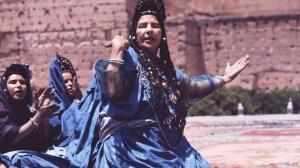Chilanga banda song: history, analysis and meaning
The song "Chilanga banda" was composed in 1994 by the controversial Mexican composer and singer Jaime López, internationalized by the group Café Tacvba.
Originally, the song was recorded by the author, Jaime López, together with José Manuel Aguilera and the group La Barranca, and was included in the experimental album I hate Fonky, bureau jacks, published in 1995.

Their influence was decisive in the Mexican cultural and musical scene, to the point that the group Cafe Tacvba he would make his own version of it and include it on his album Avalanche of successes, 1996, after what became a true mass phenomenon in Latin America.
Understanding its message and controversial character necessarily involves understanding the street language of the Mexican from the capital, that is, the caló language. Let's start by saying that “chilanga banda” means “Mexican gang (from Mexico City)”.
To get closer to the meaning of the song, we present its equivalents in a sort of
translation, if the term is allowed. At the end of the article, a glossary word by word, in alphabetical order.Chilanga Band Song
| Now chole, chilango chango! What a chafa chamba you kick! Do not check to walk of tacuche And chale with the tray As choncho as a bug More crooked than the fayuca With fusca and with blackjack It happens to you to be a guarura I better throw myself a chela And chance plugged in a girl Chambeando by chafirete I have plenty of suck and pachanga If I hit chipote sack The chota is not very cool Chiveando those who beat They see themselves bite their talacha At night I fall into the congal Do not stain says the changa To the choro de teporocho In chifla the pacha passes Pachuco, cholos and chundos Chichinflas and malafachas Here the chómpiras raffle And they dance Tíbiri-Tábara (bis) I better throw myself a chela And chance plugged in a girl Chambeando by chafirete I have plenty of suck and pachanga My ñero kills the pot And the cockroach sings His choya lives on cunts Of chemo, churro and garnachas Pachuco, cholos and chundos Chichinflas and malafachas Here the chómpiras raffle And they dance tibiri tabara Tracing up and down There goes the chilanga band Chinchin if you remind me Carcacha and they are retacha |
Enough was enough, Mexican "monkey" What mediocre work you do! It doesn't look good on you to be in a suit And less with a plate As fat as a bed bug More crooked than smuggling With gun and blackjack You like to be a police officer I better have a beer And maybe I hook up with a girl Working as a taxi driver I have plenty of drinks and parties If I crash, I get a bump The police are not very dignified Intimidating those who run over Taking a bribe is your job At night I fall to the brothel "I don't believe him," says the monkey "A drunkard's lies" Quickly pass the bottle Gang members, mestizos and ignorant Snitches and suspects Here the petty thieves prevail And they dance Tíbiri-Tábara (bis) I better have a beer And maybe I hook up with a girl Working as a taxi driver I have plenty of drinks and parties My partner ends the cannabis and the cockroach sings His head lives on drugs of glue, joints and fritters Gang members, mestizos and ignorant Snitches and suspects Here the petty thieves prevail And they dance Tibiri Tabara Scamming from top to bottom There goes the Mexican gang Oh, if they remind me! (*) Carcacha and they are retacha (**) |
| (*) and (**) See glossary at the end of the article |
Analysis

The originality of “Chilanga banda” lies in the use of gang slang from Mexico City, with which López manages to construct a coherent, controversial and critical discourse. To do so, Jaime López uses elements typical of rap and hip-hop, mixed with percussion, distorted guitars and electronic sounds.
Assuming the point of view of a poor taxi driver, whose work has allowed him to see it all, the composer de-constructs the idea of a moral hierarchy between those who "represent the law" and those who are "outside the law".
Jaime López manages, through his language, to symbolically represent the cultural universe of the gang members and marginalized, that is, of the subcultures or countercultures silenced in the discourses officers.
This reveals the presence of a significant world that grows outside the established order, with its own codes and patterns. In "Chilanga banda", police and thieves participate in the same reality and the same scale of values. Policemen are equated with criminals.
At the same time, López portrays the social reality in Mexico City, and denounces the abuse of power and corruption by the authorities. It is not about the victimization of the gang member, but it is about the revelation of the incoherence of the system, whose practices are equivalent to those of crime. A bad omen for the common citizen, trapped in an order where "chómpiras raffle" (thieves prevail).
Chilanga banda versions
Jaime López, author of the song
The previous video is the original recording performed by Jaime López and José Manuel Aguilera included in the disc I hate Fonky, bureau jacks.
Jaime López is a Mexican composer and singer born on January 21, 1954. Besides singing, he plays guitar, bass and harmonica and does beatboxing. He has excelled in the genres of rock, folk, and norteño music, as well as blues and bolero, among others.
His style has kept him out of commercial radio since his debut in 1975. He challenges the prevailing standards with the use of poetry inspired by Mexican social reality and popular speech. In this sense, he has stood out for giving voice to the forms of expression of marginalized groups in Mexico.
In recent years, Jaime López and his Hotel Garage made a new version of the song. This version was recorded in 2014, and unlike the previous one, it uses elements typical of rock and heavy metal.
Cover by Café Tacvba
Café Tacuba is a Mexican band formed by Emmanuel Del Real, Enrique Rangel, Joselo Rangel and Rubén Albarrán. It was officially born in 1989 in Mexico City.
In 1990 they meet the Argentine producer Gustavo Santaolalla, who will produce his discography in the following years, including his third studio album, Avalanche of successes, 1996.

Hand in hand with Santaolalla, the rise of the band begins, which participates in different national festivals and international, and share stages with other greats such as Paralamas, Mano Negra, Los Fabulosos Cadillacs, among others.
Among other outstanding works, we can mention the session unplugged with MTV from 1995, which was released only in 2005, as well as the inclusion of the songs "Aviéntame" and "Dog: God" in the film. Dog lovesby Alejandro González Iñárritu.
See also Movie Amores perros by Alejandro González Iñárritu.
Glossary of Chilanga band (in alphabetical order)
- Bacha: cigarette butt from cannabis.
- "Carcacha y se les retacha": Childish expression. ‘Carcacha’ by itself designates an old vehicle. As a whole, the expression is used to return an insult.
- Chafa: little value.
- Chafirete: driver / bad driver.
- Chale: interjection used to contrast or contradict.
- Chamba: work.
- Chance: chance / luck.
- Chango / changa: monkey / cute, derogatory treatment referring to people.
- Tray: plate.
- Chava: girl.
- Check: combine.
- Chela: beer.
- Chemo: glue whose inhalation generates narcotic effects.
- Chinchin: challenge, woe to you! In the song, it is a challenge to the person if he chooses to remind "her mother" (mention the mother), if she insults him.
- Chichinflas: snitch / pimp.
- Chilango / chilanga: native of the D.F., in Mexico.
- Bed bug: round, smelly, bloodsucking bug.
- Chipote: bump.
- Chiveando (from chivear): intimidando (intimidate).
- Chochos: narcotic tablets.
- Cholos: mestizos taken by gang members.
- Chómpiras: petty thief.
- Choncho: fat.
- Choro: lie.
- Chota: police.
- Choya: head.
- Crooked: crooked, corrupted.
- Chundos: ignorant / small-town / indigenous.
- Suck: drinks.
- Churro: cannabis cigar.
- Chutar: perform, work, do.
- Congal: brothel.
- In chifla: quickly.
- Plug (figurative, plug): I hook up.
- Fayuca: smuggling.
- Fusca: pistol.
- Garnachas: Mexican fried food that is sold on the street.
- Guarura: guard, bodyguard, watchman.
- Machucan (from machucar): running over (running over).
- Malafachas: bad looking, aggressive, lazy, surly.
- Molacha: worthy.
- Biting: accepting a bribe.
- Do not stain!: expression that indicates disbelief.
- Ñero: partner contraction.
- Pacha: bottle of liquor (purse, canteen).
- Pachanga: party.
- Pachucos: gang members with extravagant costumes.
- Pass (to pass): like.
- Rifan (from raffling): dominate / prevail (dominate / prevail).
- Tacuche: suit.
- Talacha: labor.
- Teporocho: habitual erasure.
- Tíbiri tábara: song from La Sonora Matancera (we leave the song at the end of this glossary section).
- Transando (from transacting): scamming (swindling).
- Ya chole!: enough is enough, enough is enough.


